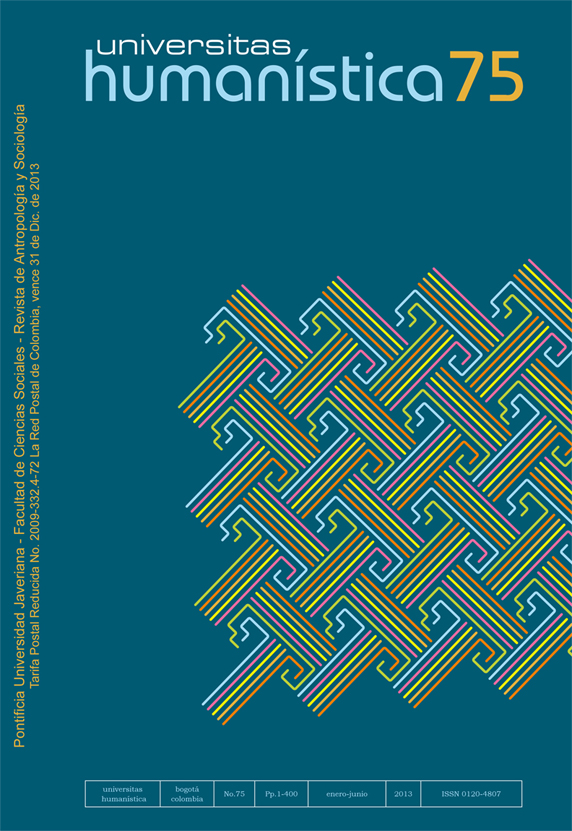Resumen
Este artículo interroga el posicionamiento individual, en tanto investigador, y el colectivo, en tanto práctica disciplinaria, que implica la reflexividad en la antropología. Su objetivo, más que presentar resultados de una investigación, es reflexionar sobre el rol que ocupamos como actores en los procesos sociales que nos esforzamos a estudiar. Para ello parece necesario releer ciertos aspectos del itinerario biográfico del investigador a la luz de sus
trabajos de campo y al grado de implicación que tiene con respecto a las personas con las cuales establece una relación de investigación. Para poder clarificar nuestro posicionamiento liminal es necesario cuestionar la categoría de investigadores del “sur” a partir del trabajo de campo y sus consecuencias respecto a la implicación y el compromiso que podemos asumir junto a las poblaciones con las que trabajamos.

La revista Universitas Humanística se encuentra registrada bajo la licencia Creative Commons Reconocimiento 4.0 Internacional. Por lo tanto, esta obra se puede reproducir, distribuir y comunicar públicamente en formato digital, siempre que se reconozca el nombre de los autores y a la Pontificia Universidad Javeriana. Se permite citar, adaptar, transformar, autoarchivar, republicar y crear a partir del material, para cualquier finalidad (incluso comercial), siempre que se reconozca adecuadamente la autoría, se proporcione un enlace a la obra original y se indique si se han realizado cambios. La Pontificia Universidad Javeriana no retiene los derechos sobre las obras publicadas y los contenidos son responsabilidad exclusiva de los autores, quienes conservan sus derechos morales, intelectuales, de privacidad y publicidad.
El aval sobre la intervención de la obra (revisión, corrección de estilo, traducción, diagramación) y su posterior divulgación se otorga mediante una licencia de uso y no a través de una cesión de derechos, lo que representa que la revista y la Pontificia Universidad Javeriana se eximen de cualquier responsabilidad que se pueda derivar de una mala práctica ética por parte de los autores. En consecuencia de la protección brindada por la licencia de uso, la revista no se encuentra en la obligación de publicar retractaciones o modificar la información ya publicada, a no ser que la errata surja del proceso de gestión editorial. La publicación de contenidos en esta revista no representa regalías para los contribuyentes.


